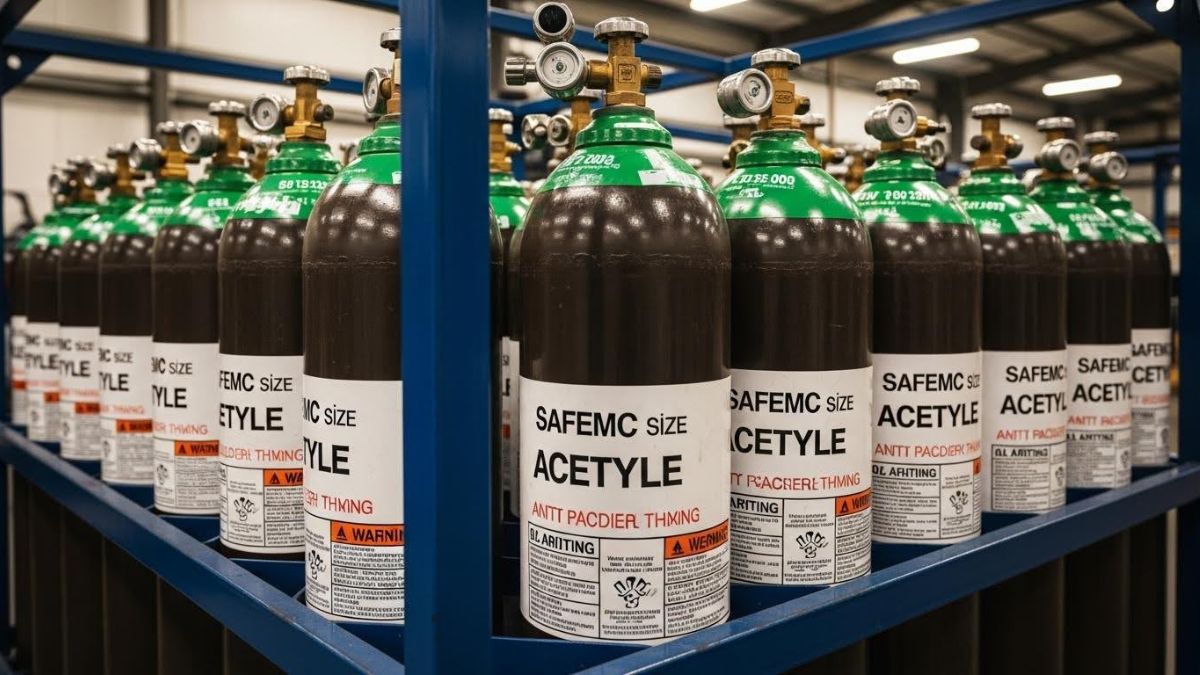TOPIC
The Importance of Pools and Landscaping for Private Villas

Private villas represent the pinnacle of luxury living, offering homeowners a retreat from the world while embracing style, comfort, and exclusivity. Among the many elements that elevate the value and appeal of private villas, pools and landscaping stand out as transformative features. The integration of a stunning swimming pool and meticulously planned landscaping not only enhances aesthetics but also boosts functionality and market value.
Why Pools Are a Cornerstone of Villa Design
Aesthetic Appeal and Modern Living
Swimming pools are synonymous with luxury. A well-designed pool serves as a centerpiece for the villa’s outdoor space, creating a visual statement that blends seamlessly with architectural elements. Whether it’s an infinity pool overlooking the skyline of Dubai or a resort-style pool with water features, pools bring a modern, serene vibe to private properties.
Health and Wellness Benefits
Pools offer more than just aesthetics; they are a cornerstone for promoting health and wellness. Regular swimming enhances cardiovascular health, reduces stress, and provides a low-impact workout. For villa owners, having a private pool ensures privacy and convenience for maintaining an active lifestyle.
Social and Entertainment Hub
A private pool transforms a villa into an entertainer’s paradise. It becomes a hub for hosting family gatherings, poolside BBQs, or luxurious evening parties. When combined with landscape features such as pergolas or outdoor bars, the experience becomes unmatched in luxury.
The Role of Landscaping in Enhancing Villa Spaces
Creating a Seamless Connection Between Indoors and Outdoors
Landscaping bridges the gap between the villa’s interiors and exteriors. Using pathways, lush greenery, and outdoor seating, professional landscape contractors design spaces that flow naturally from indoor luxury to outdoor serenity.
Increased Privacy and Security
Strategically placed trees, hedges, and pergolas not only beautify the outdoor space but also create natural barriers for privacy. These elements shield the villa from prying eyes while enhancing the security and exclusivity of the property.
Environmental and Energy Efficiency
Modern landscaping emphasizes sustainability. Incorporating native plants, energy-efficient irrigation systems, and shaded outdoor areas reduces water and energy consumption, making the property eco-friendly. For villas in regions like Dubai, xeriscaping with drought-resistant plants offers a balance of elegance and resource conservation.
The Synergy between Pools and Landscaping
Design Cohesion for a Luxurious Outdoor Oasis
Pools and landscaping must work in harmony to create a cohesive design. Professional pool and landscape contractors specialize in integrating these elements to enhance the villa’s overall aesthetic. Features such as poolside cabanas, surrounding greenery, and mood lighting elevate the outdoor experience.
Maximizing Functionality
A seamless blend of landscaping and pools ensures practicality. For example, incorporating stone pathways around the pool area, shade-providing structures, and outdoor kitchens enhances usability and comfort.
Key Trends in Pools and Landscaping for Private Villas
Smart Technology Integration
Technology is redefining outdoor spaces. Automated pool systems, smart irrigation controls, and landscape lighting that syncs with mobile apps provide villa owners unparalleled convenience and control over their spaces.
Minimalist and Contemporary Designs
Sleek, clean lines dominate modern villa aesthetics. Rectangular pools, linear water features, and minimalist landscaping create a sophisticated look that complements contemporary architectural styles.
Outdoor Kitchens and Entertainment Zones
The demand for outdoor kitchens, BBQ areas, and alfresco dining setups is on the rise. When paired with pools and lush landscaping, these features create the ultimate outdoor living experience.
Choosing the Right Pool and Landscape Contractors
Selecting experienced pool and landscape contractors is critical to achieving the perfect villa design. In Dubai, where innovation and luxury define the market, contractors must possess expertise in both design and execution. From creating a German kitchen in Dubai to integrating cutting-edge pool designs, skilled professionals transform visions into reality.
What to Look for in Contractors
- Portfolio of Previous Projects: Review their work to ensure alignment with your design preferences.
- Material Quality: Ensure the use of high-quality, durable materials suitable for local climates.
- Customization Capabilities: Opt for contractors who offer bespoke solutions tailored to your villa’s unique requirements.
Final Thoughts: Elevating Villas with Pools and Landscaping
Pools and landscaping are more than just decorative features; they define the lifestyle of villa owners. By enhancing aesthetics, increasing functionality, and adding value, these elements transform private villas into luxurious sanctuaries. Partnering with experienced contractors ensures that every detail aligns with your vision, creating a space that exudes sophistication and exclusivity.
TOPIC
Riding During Festival Season? Here’s Why It’s More Dangerous

Festivals in Baton Rouge are full of life, music, and energy, but they also come with more traffic and less predictability. What feels like a fun local event for most people can be a hazard for anyone riding on two wheels. Motorcyclists often get caught in the chaos, surrounded by distracted drivers, blocked intersections, and sudden detours. Riding during these busy times demands a different level of awareness.
Crowds change the rules of the road. Drivers make last-second turns, pedestrians step into traffic, and roads become harder to navigate safely. One wrong move in festival traffic can lead to serious injuries. Knowing the risks ahead of time helps riders protect themselves during these high-energy events.
Crowded Streets Leave Less Room to React
During festivals, roads that are usually open and clear fill up with cars, delivery trucks, and people on foot. This congestion gives motorcyclists less space to move, dodge, or slow down safely. One distracted driver can close that already tight gap in an instant. Riders have to be on high alert for unpredictable movement in every direction.
Street parking also gets out of control. People double park or leave their cars where they should not, making turns and exits far more dangerous. Bicyclists and pedestrians weave between vehicles with little warning. These tight quarters make even short rides more stressful than usual.
Festival Detours Can Confuse Drivers and Riders Alike
Temporary signs and blocked intersections are a common sight during large events. GPS apps may not update in time, sending people down roads that are already closed. This creates frustration and last-minute turns from drivers who are trying to re-route themselves. Those snap decisions often put motorcycles in their blind spots.
According to Babcock Injury Lawyers in Baton Rouge, these poorly marked detours play a major role in festival-season collisions. Riders might not know they are heading into a hazard zone until it is too late. Without clear direction, the risk of wrong-way driving and shoulder riding increases. All of this makes staying alert even more important for anyone on a bike.
Party Crowds Bring a Higher Risk of Impairment
Festival season is full of celebration, but alcohol is often part of the mix. Even responsible people might drive home after just one drink, unaware of how it affects their reaction time. Others may leave crowded venues confused, tired, or overwhelmed. These factors create a noticeable uptick in reckless driving.
Riders face an increased risk not because they are careless, but because others around them are. Impaired drivers may swerve, ignore signals, or forget to check mirrors. When paired with high foot traffic and distractions, the situation becomes far more dangerous. Watching for erratic movement becomes critical on every block.
Distracted Driving Gets Worse During Events
Big festivals often mean phones come out more often. Drivers might be checking directions, texting friends, or snapping photos while behind the wheel. This extra layer of distraction is bad news for motorcyclists who already struggle to be seen. Eyes on a screen instead of the road means more riders end up in someone’s blind spot.
Even drivers who are not on their phones might be scanning crowds or trying to spot parking. Their attention drifts, even for a second, and that is enough to miss a rider next to them. These quick lapses are how accidents happen. Staying visible and leaving space is more important than ever in these situations.
Unfamiliar Roads Bring New Hazards
Festival routes are not always held in familiar areas. Visitors from outside Baton Rouge often use backroads, neighborhood streets, or surface roads they have never driven before. That unfamiliarity leads to slower reaction times and last-second lane changes. Riders often pay the price for someone else’s confusion.
Even locals can find themselves rerouted through unfamiliar areas. That means new road conditions, hidden potholes, and different traffic flow. For motorcycles, this kind of unpredictability creates danger at every turn. Avoiding these areas altogether, when possible, is a smart strategy.
Parking Lots and Event Zones Become Collision Hotspots
Many accidents happen not on the road but just outside the main event. Parking lots, vendor access points, and alleyways see a lot of slow-moving but dangerous activity. Riders navigating these spaces are often overlooked by distracted walkers or drivers backing out without checking. It only takes a few feet of movement to cause major damage.
These zones often lack proper lighting or signage. People wander in all directions, and cars cut across lines just to grab the closest spot. These are not minor risks. Treating every slow zone like a potential hazard keeps riders more alert and better prepared.
Even Police Presence Cannot Prevent Every Risk
Extra patrols are a given during large events, but they are not everywhere at once. Officers may be managing crowd flow or dealing with emergencies on foot. That means many traffic violations go unnoticed, especially in less visible areas. Riders should not assume that rules will be enforced the same way during these times.
Being careful is not just about obeying the law; it is about anticipating who might not. Some drivers take more risks during events, thinking the crowd will hide their actions. For motorcyclists, trusting the environment too much can lead to regret. Defensive riding becomes your best protection.
Planning Ahead Can Change the Outcome
Choosing your route before heading out can save you from major stress. Avoid the most crowded zones, leave extra time to get where you are going, and let someone know your plan. Wearing high-visibility gear and making sure your lights are working properly can also make a big difference. Small steps go a long way in reducing risk.
Festival season should be about fun, not recovery. Riding smarter and anticipating the actions of others gives you an advantage. Even with all the added challenges, you still have tools to stay safe. Use them every time you ride through the crowd.
TOPIC
What features should you look for in a VPN Chrome extension?

Have you ever felt that twinge of anxiety when browsing online, wondering if your sensitive data is truly secure? In a world where privacy breaches and cyber-attacks are on the rise, ensuring your online safety has never been more critical. A Virtual Private Network (VPN) may seem like an intimidating tool to navigate, particularly when it comes to integrating it seamlessly with your browsing experience through Chrome extensions. But with the right knowledge, you can transform your online journey from vulnerable to fortified.
In this article, you’ll uncover the essential security features necessary for a robust VPN Chrome extension, such as strong encryption and leak protection, which are vital for safeguarding your personal information. You’ll also learn how to evaluate privacy measures that can keep your online footprint under wraps and discover the impact of server locations on your connection speed and streaming capabilities. By the end, you’ll have a comprehensive understanding of how to choose a VPN that not only meets your needs but enhances your overall browsing experience. Dive in as we explore the landscape of VPN Chrome extensions and equip you with the tools to reclaim your online privacy.
Essential Security Features for VPN Chrome Extensions
When it comes to vpn chrome extensions, robust security features are absolutely indispensable. One of the key components is strong encryption, with AES-256 being the gold standard in the industry. This level of encryption safeguards your data from unauthorized access, ensuring your information remains confidential.
Furthermore, it’s crucial to protect against leaks, specifically DNS and WebRTC leaks. These vulnerabilities could inadvertently reveal your actual IP address, compromising the very purpose of using a VPN. Additional features, such as built-in ad blockers and malware protection, can significantly enhance your browsing security.
Many extensions also incorporate an automatic kill switch, which disconnects your internet access if the VPN drops unexpectedly. This is essential for preventing any accidental exposure of your data. To bolster user confidence, regular security updates and independent audits can demonstrate a provider’s reliability and commitment to privacy.
Evaluating Privacy Measures: What to Look For
Choosing a VPN Chrome extension requires careful consideration of privacy. A strong no-logs policy is vital since it ensures your online activities are neither stored nor tracked, which is fundamental for maintaining anonymity and protecting your data.
The jurisdiction in which a VPN operates is equally important. Opt for VPNs based in regions with solid privacy regulations and no mandatory data retention, as they offer greater protections against surveillance. For instance, areas like the British Virgin Islands are known for being favorable to privacy-oriented services.
Extensions that block trackers and advertisements further amplify your privacy by minimizing the chances of online monitoring. Some even disable WebRTC by default to help prevent unwanted IP leaks. To gauge a VPN’s dedication to privacy, consider user reviews and third-party audits as trustworthy resources.
Understanding Server Locations and Their Impact on Performance
The number and diversity of server locations play a significant role in a VPN’s performance. A larger network allows users to access region-specific content and bypass geographical restrictions. This flexibility is particularly vital for streaming services like Netflix, which impose content limitations based on location.
Additionally, the distance to a server can affect connection speed. Typically, servers that are closer will offer faster connections, which reduces latency and buffering. To avoid performance issues, it’s advisable to select a well-supported server, especially during peak usage times.
Premium VPN extensions often provide high-performance servers meticulously optimized for various activities, such as streaming and gaming. Some even offer dedicated servers tailored for specific use cases, ensuring users enjoy the best experience possible.
Analyzing Connection Speed and Streaming Capabilities
Connection speed is a crucial aspect when assessing a VPN Chrome extension. For users engaged in streaming or video conferencing, having a fast and reliable connection is essential. VPNs that utilize modern protocols like WireGuard typically provide enhanced speeds and overall performance.
Effective VPNs minimize speed loss, allowing for smooth streaming of high-definition content without interruptions. Many premium services regularly update their server IP addresses to outsmart blocks imposed by streaming platforms.
While free VPN options may seem tempting, they often come with restrictions such as speed limits and data caps, leading to frustrating user experiences. In contrast, paid VPN extensions typically offer unlimited data and superior speeds, catering to users with higher demands.
User Experience: Navigating the Interface and Setup Process
The user experience is a vital consideration when selecting a VPN Chrome extension. An intuitive interface streamlines the connection process, ideally enabling users to connect with just one click. Clarity in server selection and management is key to ensuring a smooth user journey.
An optimal VPN extension features a clean, minimalistic design that avoids unnecessary distractions. Status indicators can keep users informed about connection strength and security protections, improving usability and satisfaction.
Additionally, support for multiple devices and synchronization with a main VPN service adds convenience. Including integrated tutorials or help sections within the extension can further assist users in navigating features seamlessly. Finally, responsive customer support is essential for fostering a positive overall experience.
Comparison of Pricing Models: Free vs Paid Options and Their Features
Free VPN Chrome extensions often attract casual users but come with notable limitations. These may include data caps, fewer server options, slower speeds, or questionable logging practices. For example, while Proton VPN offers unlimited data on its free tier, its choice of server locations may be restricted.
On the other hand, paid VPN extensions deliver improved features, including unlimited data, expansive server networks, and advanced security protocols. They frequently support HD streaming and are less likely to track user activity. Well-known providers like ExpressVPN and NordVPN are celebrated for their reliability and strong offerings.
Though free options may suffice for occasional browsing, those in need of consistent privacy and performance typically find greater benefits with paid plans. Choosing providers that offer trial periods or money-back guarantees can empower users to evaluate service quality before making a long-term investment.
TOPIC
Uses and Safe MC-Size Acetylene Tanks: A Complete Guide

Acetylene gas is widely used in metalworking industries, particularly for applications like welding, brazing, and cutting. Among the various sizes of acetylene cylinders, the MC-size acetylene tank is a compact and convenient option, especially for mobile technicians, HVAC professionals, and small-scale metalworking jobs. Despite its small size, the MC cylinder offers substantial utility and requires specific handling for safety and efficiency.
In this comprehensive guide, we’ll explore the uses and safe MC-size acetylene tanks, look at specifications, safety practices, and its role in combination with oxygen tanks for flame-based metalwork.
What Is an MC-Size Acetylene Tank?
The MC-size acetylene tank is one of the smallest standard acetylene cylinders available for commercial use. “MC” stands for “Motor Cylinder,” and this type is primarily designed for portable setups.
Key Specifications:
- Height: Around 15 to 16 inches
- Diameter: Approximately 4 inches
- Weight (full): About 7 to 10 pounds
- Capacity: Roughly 10 cubic feet of acetylene gas
- Fitting Size: Typically CGA 200 valve connection
Due to its compact design, MC tanks are popular among HVAC technicians and mobile welders who need lightweight, easy-to-carry gas solutions.
Common Uses of MC-Size Acetylene Tanks
1. Brazing in HVAC Repair
MC-size tanks are commonly used for brazing copper pipes during HVAC installations and repairs. Their portability allows technicians to climb ladders or work in crawl spaces without the burden of heavy cylinders.
2. Jewelry and Metal Art
Artisans and jewelers use MC-size cylinders for precision flame work, such as soldering, annealing, or melting small amounts of metal. The focused flame control of an oxy-acetylene setup is ideal for delicate tasks.
3. Small-Scale Welding Projects
While not suitable for large or high-consumption welding, MC cylinders are perfect for quick patch jobs, light-duty fabrication, or garage welding repairs.
4. Field Repairs
MC acetylene tanks are widely used for on-the-go repairs of farming equipment, fencing, and automotive exhaust systems. Technicians can easily transport the tank in service vehicles without requiring heavy lifting equipment.
5. Educational Use
Because of their safe, small-scale nature, MC tanks are often used in technical schools or welding training programs to teach students the fundamentals of gas welding and cutting.
Safety Considerations When Using MC Acetylene Cylinders
Acetylene is a highly flammable gas with unique handling requirements. Even a small tank like the MC size demands strict adherence to safety protocols.
1. Storage
- Always store upright and secure to prevent tipping.
- Keep cylinders away from heat sources and direct sunlight.
- Ensure the valve is closed tightly and protective caps are in place during transport.
2. Pressure Handling
Acetylene becomes unstable above 15 psi. Never exceed this pressure when using it with a regulator or torch. A flashback arrestor should always be installed to prevent dangerous reverse flow of flame.
3. Ventilation
Use acetylene only in well-ventilated areas. The gas is heavier than air and can settle in low-lying areas, creating a risk of explosion if ignited.
4. Leak Checks
Use soapy water to check connections for leaks before starting work. Never use a flame to detect gas leaks.
5. Transporting
If transporting the cylinder, ensure it remains upright and is secured in place. Avoid lying it flat in a vehicle or workspace, as it can cause the acetone (used to stabilize acetylene) to enter the valve or regulator.
For more details, technical specs, and best practices, refer to this full guide on uses and safe MC-size acetylene tanks.
MC Acetylene Tank and Oxy-Acetylene Torch Setups
MC-size tanks are typically used in combination with small oxygen cylinders for flame-based applications. The oxy-acetylene flame allows for precise control of heat, which is essential for brazing and light welding.
To ensure a safe and efficient flame, it’s important to understand the correct pressure settings for your setup. Improper settings can lead to backfire, flashback, or inefficient gas usage.
Refer to this helpful tutorial on oxy-acetylene torch settings brazing for a complete breakdown of torch adjustment, regulator settings, and flame types for different applications.
Comparing MC Tanks to Other Acetylene Cylinder Sizes
| Size | Gas Volume | Height | Use Case |
| MC | ~10 cu ft | 15 in | Portable brazing, HVAC, jewelry |
| B | ~40 cu ft | 23 in | Medium-scale work, shop use |
| D | ~130 cu ft | 39 in | Industrial welding and cutting |
| E | ~300 cu ft | 55 in | Large-scale and continuous use |
MC tanks are best when portability and light usage are priorities. For larger or longer jobs, it may be more cost-effective to upgrade to B or D size cylinders.
Cost and Refilling Considerations
An MC-size acetylene tank is affordable both to purchase and refill. Here’s a general cost overview:
- Tank Purchase (empty): $60–$100
- Refill or Exchange: $20–$35 per tank
- Torch Kit (MC & Oxygen): $200–$350 for a basic setup
Some suppliers offer cylinder exchange programs, where you return the empty tank and receive a pre-filled one. This is a convenient and time-saving option for mobile workers.
Be sure to check cylinder certification dates. Most tanks must undergo hydrostatic testing every 10 years, and suppliers will not refill outdated tanks.
Maintenance and Inspection Tips
Regular maintenance is essential for safety and performance. Here’s what to keep in mind:
- Inspect hoses and regulators for cracks or leaks
- Check the regulator gauge functionality before each use
- Replace torch tips when they become clogged or worn
- Clean cylinder threads and valve openings before connecting regulators
- Ensure proper torch shut-down procedures to avoid residual pressure build-up
Conclusion
MC-size acetylene cylinders provide a compact, portable, and highly efficient solution for professionals and hobbyists who require clean, controlled flame work. Whether you’re working on HVAC systems, doing artistic metalwork, or performing mobile repairs, the MC cylinder offers a flexible and easy-to-manage gas supply.
However, despite its small size, this tank contains a highly combustible gas and should always be handled with care. Knowing the uses and safe MC-size acetylene tanks will not only maximize your efficiency but also ensure your safety.
To set up your MC tank for optimal brazing or welding performance, be sure to follow the proper oxy-acetylene torch settings brazing practices.
By combining proper equipment, safe procedures, and accurate flame control, you can get the most out of your MC acetylene cylinder while minimizing risks and downtime.
-

 TECHNOLOGY3 days ago
TECHNOLOGY3 days agoTop 10 Must-Read Stories from Kristen Archives You Can’t Miss
-

 TECHNOLOGY6 months ago
TECHNOLOGY6 months agoSky Bri Net Worth Revealed: How She Built Her Financial Empire
-

 TOPIC8 months ago
TOPIC8 months agoBasement Renovation Contractors: How They Tackle Structural Issues During Renovations
-

 TOPIC2 months ago
TOPIC2 months ago5 Reasons the //Vital-Mag.Net Blog Dominates Lifestyle
-

 TOPIC4 weeks ago
TOPIC4 weeks agoTop 10 Articles from the ://Vital-Mag.net Blog That You Can’t Miss
-

 CRYPTO4 months ago
CRYPTO4 months agoCrypto30x.com Review: Is It the Right Platform for You?
-

 BUSINESS6 days ago
BUSINESS6 days agoTraceLoans Explained What You Need to Know
-

 BUSINESS3 weeks ago
BUSINESS3 weeks agoDecoding the Kennedy Funding Ripoff Report: Facts vs. Fiction
